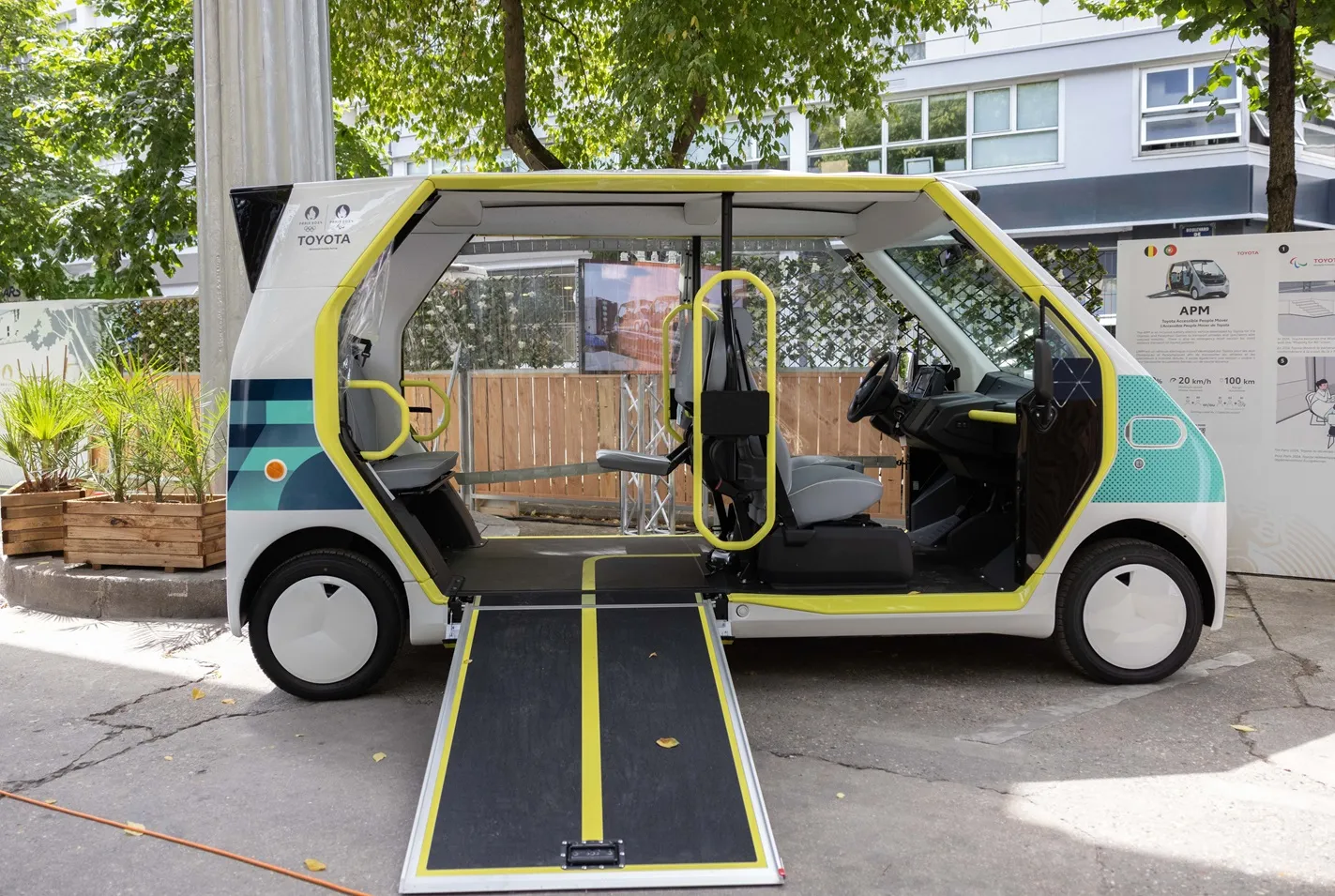
The Toyota Inclusive Mobility Park has opened in Paris, featuring several solutions designed to make transport more accessible.
Located near the Eiffel Tower, it will be open by invitation during the Olympic and Paralympic Games Paris 2024, and to the general public on 9-10 September.
Vehicles on show include the Japanese OEM's battery electric accessible people mover (APM), designed to be used in and around the Athletes Village and competition sites to transport competitors and spectators.
There are also last-mile micromobility solutions, such as C+Walk S, C+Walk T and Yosh-E, designed to assist people with different mobility needs in urban environments and which are in use during Paris 2024.
There are also solutions created by other companies, including a self-balancing personal transporter by Genny and a first-of-a-kind wheelchair brake system by Eppur.
Toyota is the mobility partner of the International Olympic Committee (IOC) and the International Paralympic Committee (IPC).
“We want to contribute to creating a more inclusive and sustainable society through mobility," says Yoshihiro Nakata, president and CEO of Toyota Motor Europe.
"The Toyota Inclusive Mobility Park is a showcase of how technology and accessibility can go hand in hand, and how the Olympic and Paralympic Games can drive positive change in society," says Andrew Parsons, president of the IPC.
"It is great to see all the innovative inclusive solutions that Toyota is bringing to the Games in one place. Their commitment to their vision of delivering Mobility for All at Paris 2024 and beyond truly comes through in this effort."
Pierre Rabadan, deputy mayor of Paris in charge of the Olympic and Paralympic Games, Sport and the Seine, said the French capital was "committed to promoting green and inclusive mobility for all".
Tony Estanguet, president of Paris 2024, praised the "real solutions that Toyota has brought to the athletes, their families, spectators and us – organisers at Paris 2024, to help us move in a sustainable and inclusive way".








